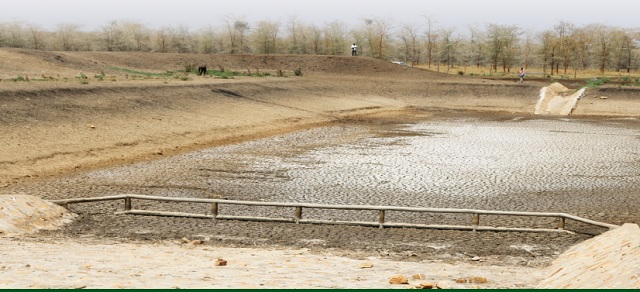
It is exactly four months before 2016 winds up but climate scientists have already noted that there is a 99% chance that this year will be the hottest ever recorded. The US-based NASA [National Aeronautics and Space Administration] recently released a mid-year climate analysis for the first time showing that July, 2016 was 0.11 degrees Celsius warmer than July, 2015 and more than a degree hotter than the 1951- 1980 average for the month.
Already 14 of the 15 hottest recorded years have occurred since the turn of the year 2000. Scientists blame the ever-rising temperatures on the world’s reliance on fossil fuels [petroleum and coal] whose consumption keeps pumping carbon dioxide into the atmosphere. Here in Uganda, local scientists agree human-induced climate change is likely to increase average temperatures by up to 1.5 degrees Celsius in the next 20 years. All this shows that Uganda is highly vulnerable to climate change.
As has already happened in some parts of the country, the failure to respond properly will mean increased food insecurity; shifts in the spread of diseases like malaria; soil erosion, land degradation and flood damage to infrastructure. The prolonged and severe drought of 1999-2000 caused severe water shortage, leading to loss of animals, low production of milk, food insecurity, increased food prices and generally negative effects on the economy.
Another drought in 2008 caused losses of approximately 3% of the value of all food and cash crops. Two years later, the country lost 16% of the total annual value of these crops as a result of extreme weather.
Scientists have already warned that unless tackled early, the effects of climate change are likely to exacerbate poverty and trigger off migration leading to regional conflicts as a result of increased competition over strategic resources, especially water.

High cost to inaction
In 2015, the Climate and Development Knowledge Network (CDKN) commissioned a study on behalf of the government of Uganda titled, “Economic Assessment of the Impacts of Climate Change Study,” to provide economic evidence on both current and future costs associated with climate variability and predicted climate change. The study also examined the necessary adaptation measures for different sectors at both national and local levels.
It found that adaptation to climate change today is well worth the investment. Specifically, the report found that the costs of inaction on climate change by 2025 are 20 times the costs of adaptation.
Whereas, the cost of adaptation is high and is estimated at about $406 million over the next five years (2015-2020), the cost of inaction is estimated at between $3.1 billion-$5.9 billion per year by 2025.
The report, for instance, shows that climate and socioeconomic change will lead to deficits in water supply without adaptation. A conservative estimate puts losses at $5.5 billion and could be as high as $50.3 billion if income elasticity is taken into account.
On Uganda’s foreign exchange balance sheet, the impact of climate change on its principal export crops, tea and coffee, provides the greatest cause for concern. These represented about 50% of Uganda’s export values in 2013. However, the climate envelope for these crops is due to shift which could lead to reductions in yields of 50-75% by the middle of the century.
In the energy sector, most energy is currently provided by biomass in unsustainable ways through deforestation (the deforestation rate is 1.8% per year). Without action, there will be a big deficit of biomass over the period 2010-2050 due to surplus demand – not to mention that climate change itself will reduce the availability of biomass.
These losses, together with reduced water available for hydropower, mean that Uganda must transition rapidly to obtain more power from low-carbon forms of energy, including renewable electrical power.
‘No regrets investments’
The adaptation measures proposed in the study are ‘no regrets’ investments, in that they are valid even in the absence of climate change. The report notes that considering strong rates of return on adaptation activities, these offer very ‘bankable’ investments, noted Anil Markandya, one of the study’s lead authors.
“If the programmes can reduce damages by even 7% then the rate of return will be 10% so they are bankable projects.”
For example, Markandya said, an existing government programme that increases the efficiency of water use by households – which simultaneously increases clean water access to households that have lacked it – would show excellent economic returns.
The report concludes that Uganda’s development prospects will only be reached if the impacts of climate change on Uganda are mitigated. That is why the evidence is intended to help policy-makers mainstream climate change and resilience into national and sectoral policies and develop the case for investing in adaptation.
Climate scientists say the only way humanity can sustain itself on the planet is eliminating all usage of fossil fuels and reducing the level of carbon dioxide in the atmosphere. To achieve this, countries will have to reduce annual greenhouse gas emissions by 40-70% by the middle of the 21st C.
 The Independent Uganda: You get the Truth we Pay the Price
The Independent Uganda: You get the Truth we Pay the Price



I am from South Africa, is it possible for me to import these briquettes?